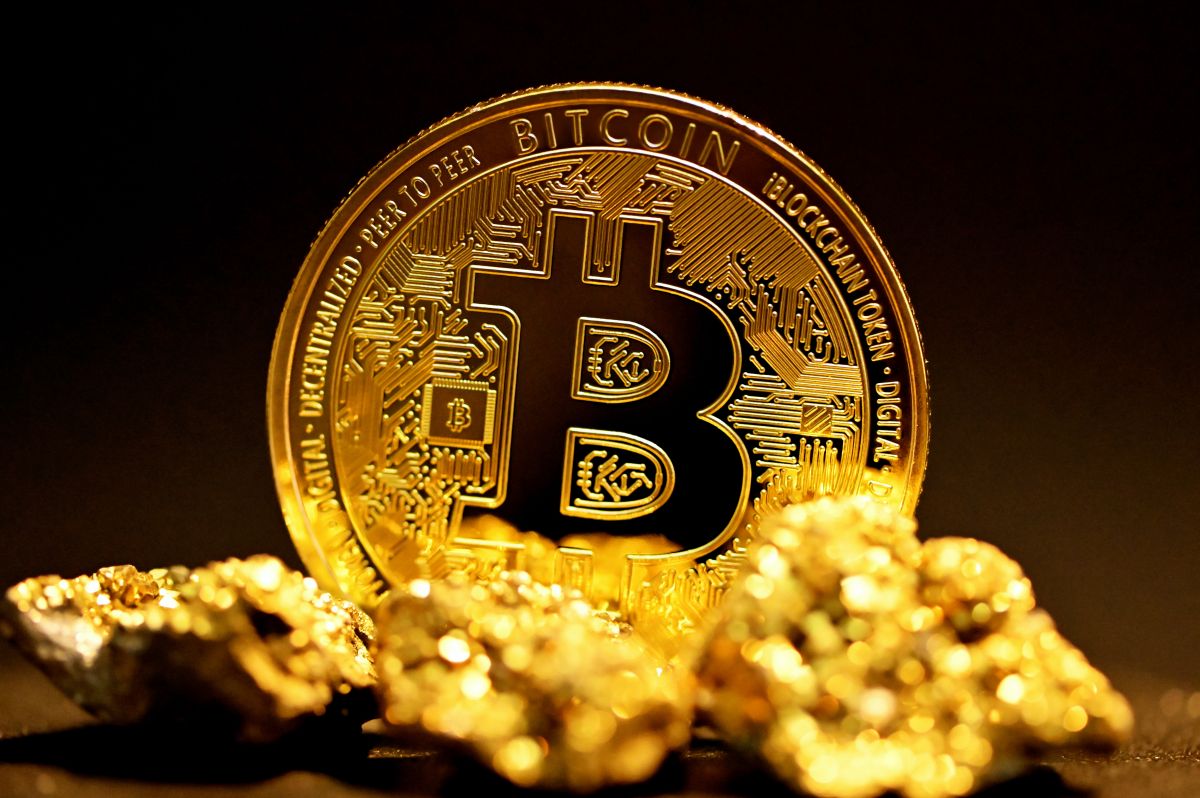The U.S. dollar has been the undisputed heavyweight of global finance for nearly a century. The dollar’s dominance has been the foundation of international commerce, monetary policy, and geopolitical influence, extending from oil trades to central bank reserves. However, a provocative topic is gaining traction as digital assets mature and global trust in traditional systems erodes: **Is it possible for Bitcoin to supplant the dollar as the primary reserve currency of the world?**
In this post, we investigate the potential conditions that could lead to a post-dollar world, the case for Bitcoin as a successor, and whether the future of global money may be more decentralized than it has ever been.
🌐 The World Under the Dollar Standard
In 1944, the Bretton Woods Agreement established the U.S. dollar as the global reserve currency. The dollar’s dominance was preserved despite the abandonment of the gold standard in 1971, as a result of:
* The enormous economic and military power of the United States * The trust in U.S. institutions and legal systems * The liquidity and depth of bond markets (e.g., U.S. Treasuries) * The dollar-denominated oil (the “petrodollar” system)
However, fissures have begun to emerge in the 21st century.
The Dollar’s Increasing Vulnerabilities
1. **Inflation and Debt Pressures**
The long-term fiscal sustainability of the United States is called into question by the substantial deficits, quantitative easing, and increasing debt-to-GDP ratios.
2. **Financial Weaponization**
Many nations are hesitant to rely on dollar-based systems due to the implementation of sanctions and financial exclusions (e.g., against Iran and Russia).
3. **Multipolarity on a Global Scale**
The EU’s efforts to fortify the euro, the emergence of economic blocs such as BRICS, and the rise of China all indicate a transition from a unipolar financial world.
4. **Digital Alternatives** CBDCs, stablecoins, and crypto are all providing more efficient and speedier alternatives to traditional banking rails and SWIFT.
What is the rationale behind Bitcoin?
**1. Anti-Inflationary = Limited Supply**
Bitcoin incorporates inherent scarcity, as there are only 21 million coins that will ever be mined. Central banks are incapable of inflating or manipulating it, in contrast to fiat currencies.
**2. Borderless and Decentralized**
Bitcoin is not under the control of any particular nation. It provides a politically neutral alternative to national currencies, operating independently of geopolitical influence.
**3. Transparent and Trustworthy**
Bitcoin operates on a public blockchain and open-source code, which ensures that the rules and transaction history are verifiable, in contrast to the opaque policies of central banks.
**4. Increased Institutional Adoption**
Bitcoin’s increasing legitimacy as a financial asset is being signaled by the adoption of the cryptocurrency by major hedge funds, corporations, and even countries (e.g., El Salvador).
The Obstacles to Bitcoin’s Supremacy
Although Bitcoin is appealing, it is confronted with significant obstacles in its pursuit of overthrowing the dollar:
* **Volatility**: The price of Bitcoin is subject to significant fluctuations, which undermines its effectiveness as a dependable store of value.
* **Scalability**: The Lightning Network and other Layer 2 solutions demonstrate potential, despite the current restriction on transaction throughput.
* **Regulatory Hostility**: Numerous governments perceive Bitcoin as a threat to monetary sovereignty and may oppose or restrict its use.
* **Inadequate Price Stability**: A reserve currency is required to facilitate global trade and debt markets. Bitcoin would necessitate additional mechanisms to ensure stability.
* **Energy Consumption**: The environmental impact of Bitcoin’s proof-of-work model is a topic of active debate and discussion, despite the fact that it is being criticized.
🔮 Images of a Post-Dollar World
**Scenario 1: Bitcoin as a Digital Reserve**
Bitcoin becomes a critical asset in central bank reserves, in addition to gold and main fiat currencies. It does not supplant the currency; rather, it enhances it.
**Scenario 2: Parallel Currencies**
Depending on the context, individuals and businesses use both fiat and Bitcoin interchangeably—international remittances in BTC, local taxes in fiat.
**Scenario 3: Bitcoin as the Unit of Account**
In a more radical future, Bitcoin will serve as the global unit of account, with products, services, and contracts priced in sats (satoshis) rather than dollars.
**Scenario 4: Fragmented Monetary Order**
In place of a single global currency, a multipolar system is established, which includes private stablecoins, regional digital currencies, CBDCs, and Bitcoin.
Will the dollar be replaced by bitcoin?
The more probable result is that Bitcoin will not entirely replace the dollar, but rather **reshape the monetary order** by:
* Serving as a **fiat money printing check** * Developing into a **geopolitical hedge** for nations that are not part of the Western union
* Promoting **financial innovation** in digital identity, lending, and payments
* Establishing a **decentralized alternative** to systems managed by the International Monetary Fund (IMF) and SWIFT
Bitcoin may not be the one to don the crown, but it will be present in the room where decisions are made. in other words.
Final Thoughts: From Dollar Hegemony to Decentralized Finance?
The transition to a world without the dollar may not occur immediately, but the trajectory is evident. The **rebalancing of monetary power** is indicated by the increasing influence of digital finance and the rise of Bitcoin.
The transformation of Bitcoin into a potent co-ruler or king is contingent upon the adaptation of global institutions, governments, and individuals to a world in which the rules of money are defined by **code**, not central banks.
**What are your thoughts? Could Bitcoin truly supplant the dollar, or will it continue to exist as a decentralized outsider? Please express your opinions in the space provided below. **

Leave a Reply